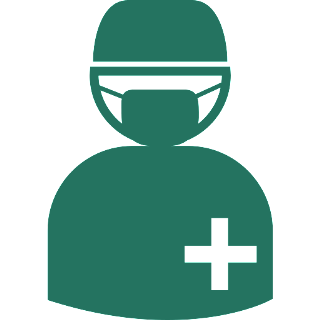FOR ENQUIRIES FILL THE FORM
( OR )
Latur Location


2 Lac + Happy Patients
Best Fissure Hospital in India As Per Google(4.9) ★★★★★
'Centre of Excellence in Proctology' by Dr Antonio Longoo
International recognized doctors. Lady doctors Available
Experienced and skilled surgeons
Topmost Referral Centre for Complex Fissure
An anal fissure is a break in the skin of the anus. Anal fissures are extremely common, as many as one in five people will experience one at some point. Anal fissures are very painful and can cause bleeding. Some types of anal fissures heal by themselves, while others may require medical treatment.
An anal fissure is also known as hemorrhoid in the anus. It occurs when blood pools in the large muscle called the bulbocavernosus, which is around the opening of the anus. This blood pooling creates scalding pain and burning sensations, which are common symptoms.
Symptoms can include -
Treatment usually involves dietary changes and local applications of medication, such as creams, to relax the sphincter muscle and promote healing. In some cases, surgery may be necessary to relieve the symptoms and heal the fissure.
Most people with an anal fissure don’t need any medical intervention whatsoever. You can treat the pain and discomfort yourself by taking home remedies such as using a heating pad, ice packs, and rest. An anal fissure can be treated at home by:
After attempting home cures for your symptoms, you should see a doctor. He or she may suggest additional therapies.
The sphincter muscles can be relaxed by a calcium channel blocker cream, allowing the anal fissure to heal.
Anal fissures are not always preventable, however by adopting the following precautions, you can lower your risk of developing one:
Sharp discomfort and trace amounts of bright red blood with bowel movements can be brought on by anal fissures. The most common cause of anal fissures is long-term or recurrent damage to the area. Anal fissures are frequently caused by childbirth, anal sex, and transferring of hard stools.
More than 97% of laser fissure surgery patients experience success. Between 1 and 3%, the recurrence rate is relatively low.
Fissure surgery's success rate: More than 97% of laser surgery procedures are successful. One to three percent is the exceedingly low recurrence rate
Trauma to the anus and anal canal can result in anal fissures. Any one or more of the elements listed below may contribute to the trauma: long-term constipation find it difficult to go to the bathroom, especially if the stool is big, hard, or dry.
While fissures are only minute cracks, fistulas are entrances to cavities. Swollen blood vessels are the most obvious feature of piles. Most of the time, piles are both painless and undetectable. Fissures are very painful. When there is a fistula, pus leaks from the anal region
HEALING HANDS CLINIC,
MG Rd, opp. LDCC Bank,
Sawe Wadi, Latur,
Maharashtra 413512





